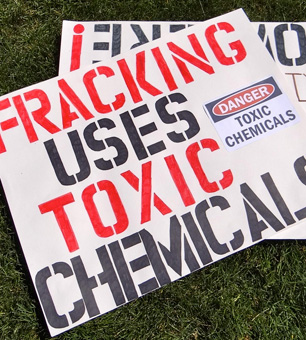Support justice-driven, accurate and transparent news — make a quick donation to Truthout today!
How times have changed. Ten years ago the United States was looking at importing natural gas via massive liquefied natural gas (LNG) terminals, yet to be built. Now the country appears to be getting ready to significantly increase exports of LNG.
A long-anticipated federal study released Wednesday for public comment concluded that the economic benefits of significant natural gas exports outweighed the potential for higher energy prices for consumers. The Obama administration has repeatedly said the study would be central to its decision on whether or not to approve expanded exports.
Do U.S. consumers really want the United States to get into the business of fracking for foreigners?
Dow Chemical and Sierra Club Slam Flawed Report
The push back on the flawed report, produced for the Department of Energy (DOE) by a private global consulting firm that has worked for the deregulation of the energy market, was immediate and came from some unexpected quarters. The U.S. chemical company Dow said the report failed to take into account the increased reliance of American manufacturers on natural gas, and environmentalists also cried foul.
“It is baffling that this report omits the serious threats increased fracking and gas production pose to our water, our air, and the health of our families,” Michael Brune, the executive director of the Sierra Club, told the Wall Street Journal.
Apparently, the impact of increased fracking and exports on the warming planet was not factored into the study either. Climate change activists have concluded that in order to keep the planet from warming above the globally agreed upon redline of 2 degrees Celsius, energy companies will have to keep 80 percent of its already proven reserves underground.
Fracking for France?
During the process of fracking or hydraulic fracturing, large quantities of water, along with sand and chemicals, are pumped into shale to crack the rock and allow oil and gas in the seams between layers of the shale to be released. Recent technologies have made accessing these deposits cheaper, leading to a rapid-fire expansion of fracking across the country. A key part of the controversy with fracking is that the chemicals are not disclosed by all of the companies involved, making it harder for people to know what chemicals and carcinogens are in the fracking fluid and waste water that is left behind.
While fracking terminals are popping up all over the United States and creating a storm of controversy in many communities, Europe, with its strong environmental and zoning laws, has been more skeptical.
In 2011, France became the first country to ban fracking for environmental reasons. There is no doubt others will follow. Ironically, the United States is preparing to pollute even more precious water resources in order to save Europe’s.
Moreover, once the spigot of gas exports to various countries is turned on, it is very hard to turn off. As the DOE explains, due to the terms of global trade agreements that the United States has entered into, (which become binding federal law when enacted), we are legally obliged to export to the nations covered by those agreements.
“Federal law generally requires approval of natural gas exports to countries that have a free trade agreement with the United States. For countries that do not have a free trade agreement with the U.S., the Department of Energy is required to grant applications for export authorizations unless the Department finds that the proposed exports ‘will not be consistent with the public interest,'” says the DOE.
If the Obama administration moves forward with allowing the construction of giant LNG terminals on our nation’s shores for the sole purpose of exporting to foreign markets, it will throw fuel on the fire of an already raging controversy.
A terrifying moment. We appeal for your support.
In the last weeks, we have witnessed an authoritarian assault on communities in Minnesota and across the nation.
The need for truthful, grassroots reporting is urgent at this cataclysmic historical moment. Yet, Trump-aligned billionaires and other allies have taken over many legacy media outlets — the culmination of a decades-long campaign to place control of the narrative into the hands of the political right.
We refuse to let Trump’s blatant propaganda machine go unchecked. Untethered to corporate ownership or advertisers, Truthout remains fearless in our reporting and our determination to use journalism as a tool for justice.
But we need your help just to fund our basic expenses. Over 80 percent of Truthout’s funding comes from small individual donations from our community of readers, and over a third of our total budget is supported by recurring monthly donors.
Truthout has launched a fundraiser to add 500 new monthly donors in the next 9 days. Whether you can make a small monthly donation or a larger one-time gift, Truthout only works with your support.
